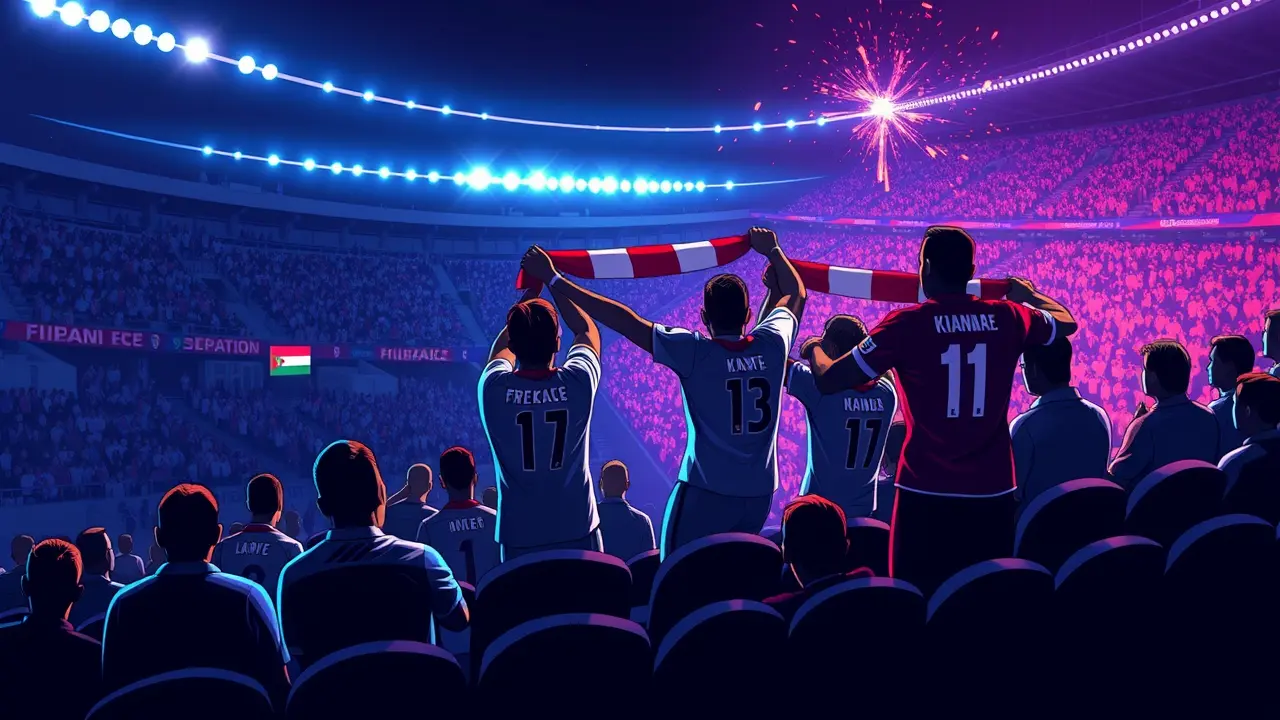FIFA World Cup 2026: The best pictures from the latest qualified teams
The global footballing landscape shifted palpably this Wednesday as the qualification pathway to the 2026 FIFA World Cup delivered its latest batch of nations, each securing their ticket with a unique blend of tactical discipline and raw, unbridled passion that the beautiful game demands. For Qatar, a nation that previously knew the World Cup stage only as a host, their 1-0 victory over the UAE at Doha's Jassim bin Hamad Stadium wasn't merely three points; it was a historic catharsis, a moment where defender Assim Madibo collapsing to the turf in shared ecstasy with Spanish coach Julian Lopetegui symbolized a nation shedding its automatic-qualifier status to earn its place through grit, a feat akin to Spain’s transition from perennial underachievers to world champions in 2010.The sea of maroon in the stands, a stark contrast to the solitary figure of a South African supporter clutching a 'Bafana Bafana' scarf after their decisive win against Rwanda, tells a story of continental resurgence, with Evidence Makgopa’s clinical third goal a strike that didn’t just ripple the net but lifted the weight of a nation that hasn't graced the World Cup since 2010, a generation of talent like Percy Tau finally getting their moment on the grandest stage. Meanwhile, in the European qualifiers, England’s captain Harry Kane, a figure whose goal-scoring consistency now draws legitimate comparisons to the legendary Alan Shearer, offered a calm, almost stoic gaze towards the travelling fans in Latvia, a look that spoke volumes of a squad, managed by Gareth Southgate, that treats qualification not as a celebration but as an expected step in their relentless march toward finally capturing a major trophy, their statistical dominance in possession and expected goals (xG) in the match a mere formality in a larger, more calculated campaign.The explosion of orange at the Alassane Ouattara Stadium in Abidjan, however, was anything but calm, as Ivory Coast’s victory over Kenya unleashed a torrent of emotion, a reminder of the Elephants' golden generation led by Didier Drogba and now carried forward by a new wave, their qualification ensuring the 2026 tournament will be infused with the rhythmic, vibrant support that makes African football a unique spectacle. In Jeddah, the celebratory scene featuring Saudi Arabia’s sport minister, Abdulaziz bin Turki Al-Faisal, amidst his players was a powerful image of a nation’s ambitious sporting project coming to fruition, a long-term vision backed by the Pro League’s high-profile signings now yielding the ultimate dividend: a chance to compete against the world's best, building on their legendary upset of Argentina in 2022.And from Dakar, the sight of Sadio Mané, a player whose work rate and humility echo the great Jay-Jay Okocha’s flair for the dramatic, celebrating with teammates after scoring against Mauritania, underscored Senegal’s status as Africa’s premier footballing force, a team so tactically disciplined and physically formidable under coach Aliou Cissé that they must be considered a genuine threat to make a deep run in 2026, potentially mirroring the semifinal journeys of European outsiders like Croatia. The overarching narrative from this pivotal qualifying window is one of both consolidation and arrival; established powers like England methodically check their boxes while nations from Asia and Africa, empowered by improved youth development and tactical sophistication, are no longer just participants but formidable contenders, setting the stage for a 2026 World Cup that promises to be the most globally competitive and emotionally charged in history.
It’s quiet here...Start the conversation by leaving the first comment.
